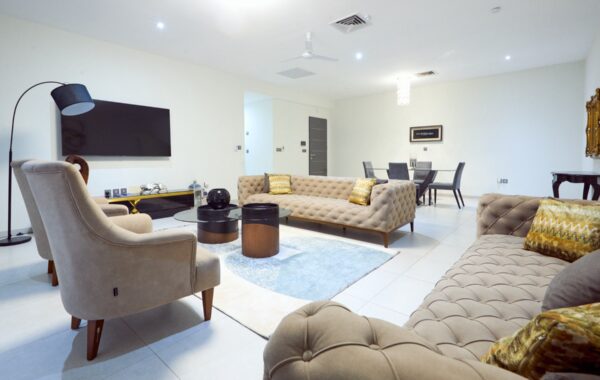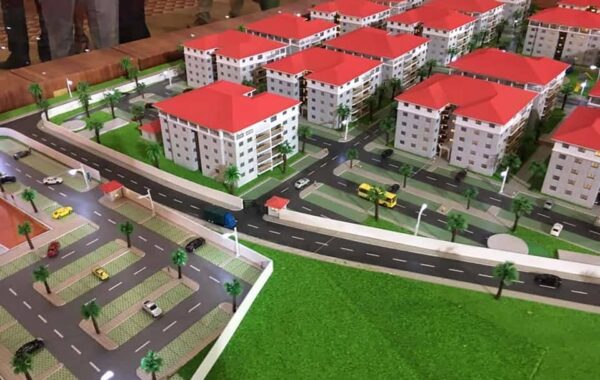
Lease Contracts in Ghana: Key Clauses to Watch Out For
You’ve found the perfect flat in weija, and the estate agent is sliding a thick lease agreement across the table with a reassuring smile. “Just sign here,” they say. But that innocent-looking stack of papers could either be your gateway to blissful living or months of unexpected headaches.
In Ghana’s rental market, where paying two years’ rent upfront is standard practice, understanding what you’re signing isn’t just smart—it’s essential. Because whilst the property brochure promises paradise, it’s the lease agreement that determines whether you’ll actually get it.
Whether you’re a young professional securing your first rental or an experienced investor expanding your portfolio, navigating tenancy agreements in Ghana requires more than good intentions. The difference between a smooth rental experience and a legal nightmare often lies in those seemingly mundane clauses buried within your contract.
The Legal Foundation: Understanding Ghana’s Rent Act 1963
Ghana’s rental landscape operates under the Rent Act 1963, a piece of legislation that, whilst showing its age, still governs most landlord-tenant relationships today. This Act establishes the basic framework for Ghana rental contracts, though many modern lease agreements incorporate additional terms that reflect contemporary rental practices.
What’s particularly interesting about Ghana’s system is how it blends statutory requirements with customary practices. For instance, whilst the Rent Act doesn’t explicitly mandate advance rent payments, it’s become standard practice for landlords to request one to two years’ rent upfront—a reality that catches many first-time renters off guard.
Getting the Basics Right: Parties and Property Details
Every solid lease agreement in Ghana should clearly identify who’s who and what’s what. This might sound elementary, but you’d be surprised how many disputes arise from ambiguous property descriptions or unclear party identification.
The lease should specify the full legal names of both landlord and tenant, complete addresses, and contact details. More crucially, the property description should be exhaustively detailed. Don’t settle for “a three-bedroom flat at East Legon.” Instead, insist on specifics: exact address, floor number, parking space allocation, and any included amenities like generator access or swimming pool privileges.
Here’s a real scenario that played out recently: A tenant rented what he believed was a “furnished apartment” only to discover that “furnished” meant a single bed and a plastic chair. The lease’s vague language left him with little recourse.
Tenancy Period: More Than Just Start and End Dates
Tenancy agreements in Ghana typically specify more than just your move-in and move-out dates. Pay close attention to renewal clauses—some automatically renew unless you provide notice (often 3-6 months in advance), whilst others require active renegotiation.
Termination conditions deserve particular scrutiny. Can you leave early if circumstances change? What penalties apply? Some landlords include clauses allowing them to terminate the lease with minimal notice for subjective reasons like “unsuitable behaviour”—language that’s far too broad for your protection.
One tenant I know discovered his lease included a clause requiring him to give six months’ notice before the end of a two-year term. He missed this deadline by a week and found himself liable for an additional six months’ rent.
Money Matters: Rent and Payment Terms
Rent payment terms in Ghana can be surprisingly complex. Beyond the monthly amount, your lease should specify due dates, acceptable payment methods, and late fees. Many contracts now include escalation clauses that automatically increase rent annually, sometimes by as much as 15-20%.
Be wary of vague language around late fees. Instead of “reasonable charges for late payment,” insist on specific amounts or percentages. Some landlords have been known to interpret “reasonable” quite liberally.
Payment methods matter too. Whilst bank transfers are becoming more common, many landlords still prefer cash payments. If your lease requires cash payments, ensure you always get receipts—preferably ones that specify the property address and rental period covered.
Security Deposits: Your Money’s Safety Net
The security deposit Ghana regulations under common law practice typically range from one to three months’ rent. However, the real issue isn’t the amount—it’s getting it back. Your lease should explicitly state:
- The exact deposit amount and when it was paid
- Specific conditions under which deductions can be made
- The timeframe for deposit return (typically 14-30 days after lease termination)
- The process for deposit refund, including required documentation
Smart tenants conduct a thorough property inspection before moving in, documenting existing damage with photos and ensuring the landlord acknowledges these in writing. Without this paper trail, you might find yourself paying for damage you didn’t cause.
Utilities and Maintenance: Who Pays for What?
This is where many rental relationships turn sour. Your lease should clearly specify who handles electricity bills, water charges, waste management fees, and internet costs. In many Ghanaian rental properties, tenants handle utility connections and payments, but this isn’t universal.
Maintenance responsibilities often follow a pattern: tenants handle minor repairs (burnt bulbs, minor plumbing issues), whilst landlords manage major repairs (structural issues, appliance replacement). However, some landlords try to shift excessive maintenance burden onto tenants through cleverly worded clauses.
Watch out for phrases like “tenant responsible for keeping the property in good condition.” This seemingly reasonable clause could make you liable for normal wear and tear—something that should be the landlord’s responsibility.
Rights, Responsibilities, and Restrictions
Understanding tenant rights Ghana extends beyond payment obligations. Your lease should respect your right to quiet enjoyment of the property, which means your landlord can’t just pop round unannounced or enter without proper notice (typically 24-48 hours for non-emergency situations).
Property use restrictions should be reasonable and clearly stated. Can you have guests overnight? Are pets allowed? Can you operate a small business from home? Some leases include blanket prohibitions that might interfere with your lifestyle more than you initially realise.
Occupancy limits often surprise tenants. Some landlords restrict the number of people who can live in the property, even if they’re family members. If your circumstances might change during the tenancy, ensure the lease accommodates this possibility.
Alterations, Subletting, and Flexibility
Most landlord responsibilities Ghana include maintaining the property’s structural integrity, but what about improvements? Your lease should specify whether you can make alterations—even minor ones like painting walls or installing shelves.
Subletting clauses deserve careful attention, especially if you travel frequently for work or might need to relocate temporarily. Some leases prohibit subletting entirely, whilst others require landlord approval. If you think you might need this flexibility, negotiate it upfront rather than hoping for leniency later.
When Things Go Wrong: Dispute Resolution
Even the best rental relationships sometimes hit bumps. Your lease should outline dispute resolution mechanisms beyond “figure it out yourselves.” Many modern Ghana property rental guide documents now include mediation clauses or specify which courts have jurisdiction over disputes.
Some landlords include arbitration clauses that require disputes to be settled outside court. Whilst this can be faster and cheaper, ensure you understand what rights you might be waiving.
Practical Tips for Lease Review and Negotiation
First, never sign a lease under pressure. Take time to read every clause, and don’t hesitate to ask for clarification on anything you don’t understand. Consider having a lawyer review complex agreements, especially for high-value properties or long-term leases.
Negotiate from a position of knowledge. Research comparable rental rates in the area, understand standard practices, and come prepared with specific requests rather than vague concerns.
Document everything. Take photos of the property’s condition, keep copies of all correspondence, and maintain records of every payment made.
Eden Heights: Setting the Standard for Transparent Rental Agreements
At Eden Heights, we believe that exceptional living starts with exceptional lease agreements. Our rental contracts are crafted with transparency and fairness at their core, ensuring that every clause serves both landlord and tenant interests.
Located conveniently behind West Hills Mall, Eden Heights offers more than just luxury accommodation—we provide peace of mind through clearly written, legally compliant lease agreements that respect your rights whilst protecting our investment. Our on-site property management team ensures that every aspect of your rental experience, from initial lease signing to eventual move-out, proceeds smoothly and professionally.
Our lease agreements include comprehensive property descriptions, fair maintenance allocation, transparent security deposit terms, and clear dispute resolution mechanisms. We understand that your home should be a sanctuary, not a source of legal anxiety.
Key Takeaways
Understanding lease contracts in Ghana empowers you to make informed decisions and protect your interests. Remember that every clause serves a purpose, and ambiguous language usually favours the party who wrote the contract, typically the landlord.
Take time to review your lease thoroughly, ask questions, and negotiate terms that don’t serve your interests. A good landlord will appreciate a tenant who understands their obligations and rights, as this foundation creates a better rental relationship for everyone involved.
Your lease agreement is more than a legal document—it’s the blueprint for your living situation for months or years to come. Make sure it’s one you can live with, quite literally.
Frequently Asked Questions
1. Can landlords in Ghana demand more than two years’ rent in advance?
Whilst there’s no legal limit under the Rent Act 1963, demanding excessive advance payments could be considered unreasonable. Most reputable landlords request one to two years’ rent upfront. If a landlord demands more, consider it a red flag and negotiate or look elsewhere.
2. What happens if my landlord doesn’t return my security deposit?
If your landlord wrongfully withholds your deposit, you can file a complaint with the Rent Control Department or pursue civil action in court. Ensure you have documentation proving the deposit payment and property condition at move-out.
3. Can I break my lease early without penalty?
This depends entirely on your lease terms. Some agreements include early termination clauses with specific conditions and penalties. If your lease doesn’t address this, you’ll need to negotiate with your landlord or potentially face liability for the remaining rent.
4. Are verbal rental agreements legally binding in Ghana?
Yes, verbal agreements can be legally binding, but they’re extremely difficult to enforce. Always insist on a written lease to protect your rights and avoid misunderstandings about terms and conditions.
5. Can landlords increase rent during my tenancy period?
Rent increases during a fixed-term lease are only allowed if specifically provided for in the lease agreement. For periodic tenancies, landlords must give proper notice (usually one rental period) before implementing increases, and these must be reasonable.
Ready to experience hassle-free luxury living with transparent, fair lease agreements? Contact Eden Heights today to schedule a property tour and discover how our commitment to excellence extends from our world-class amenities to our straightforward rental processes. Call us or visit our sales office behind West Hills Mall to explore your next home confidently.


